鳥厝邊
GoodNeighbird
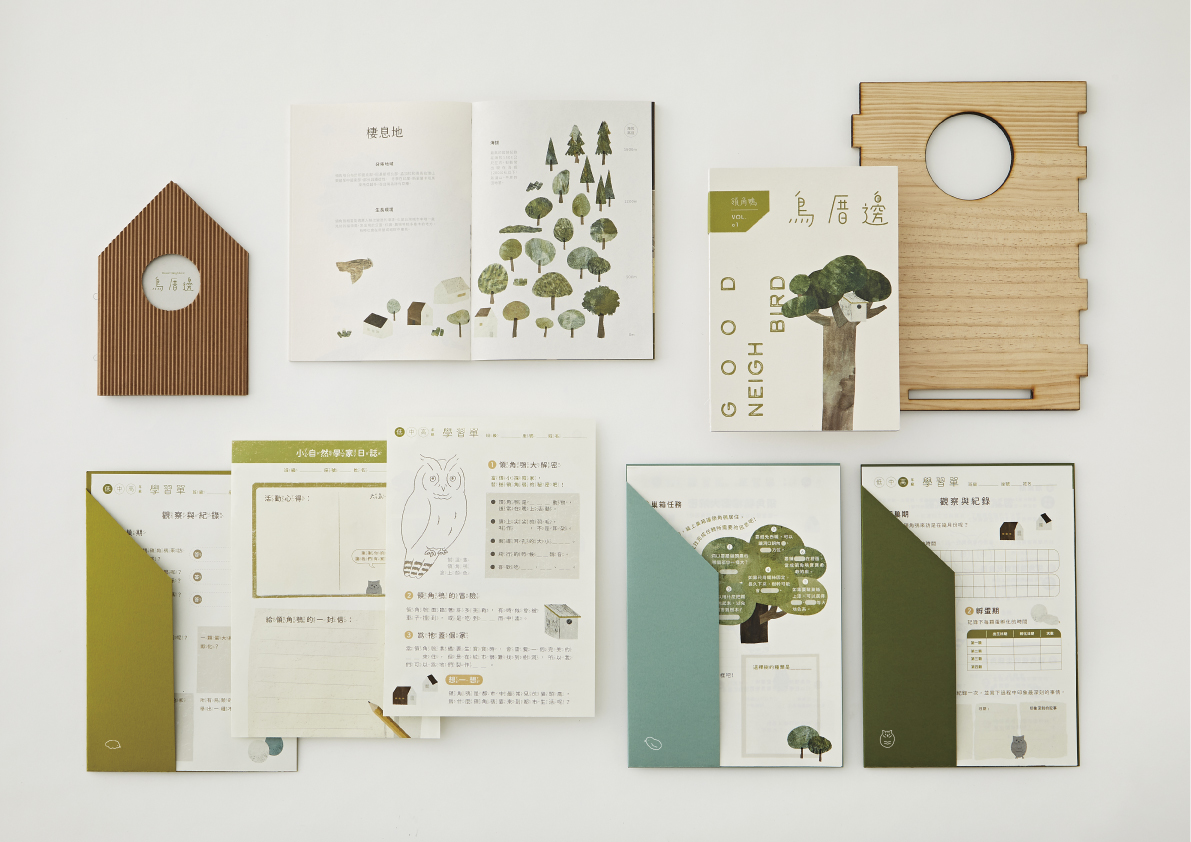
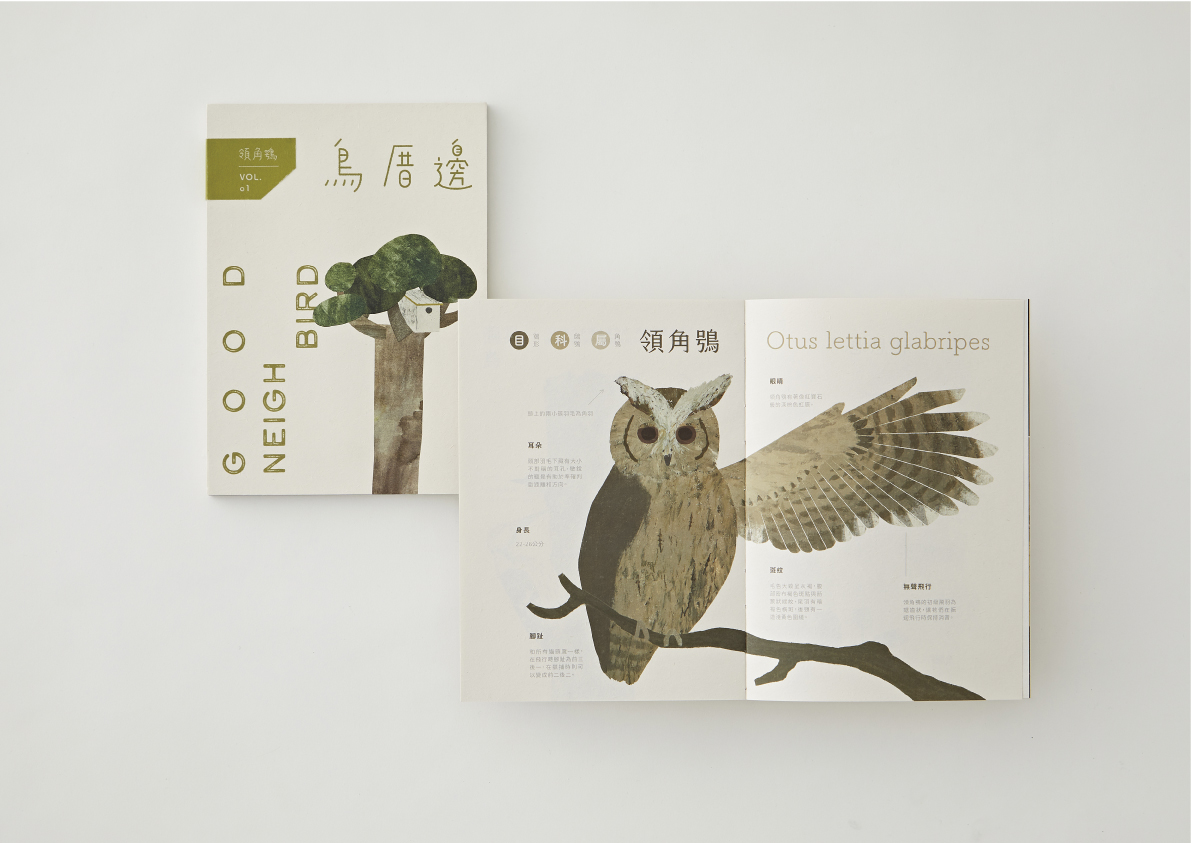
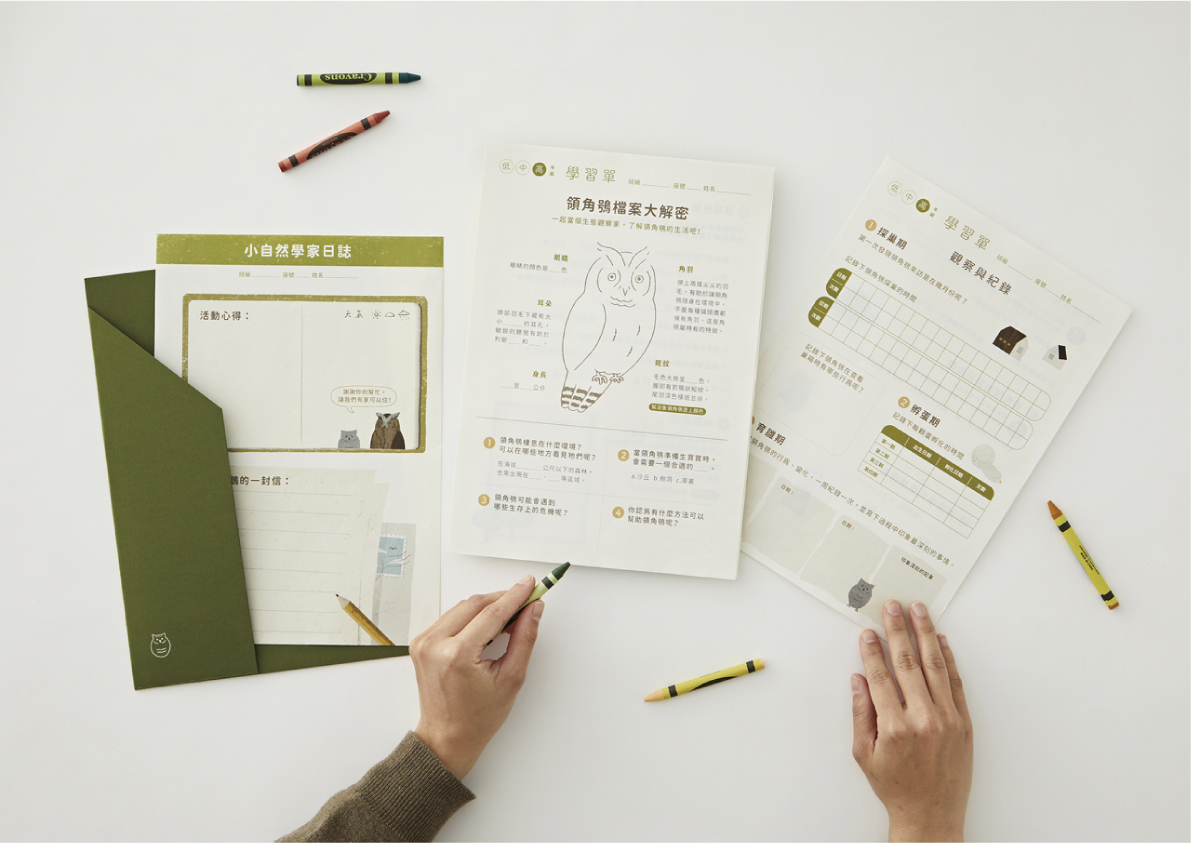
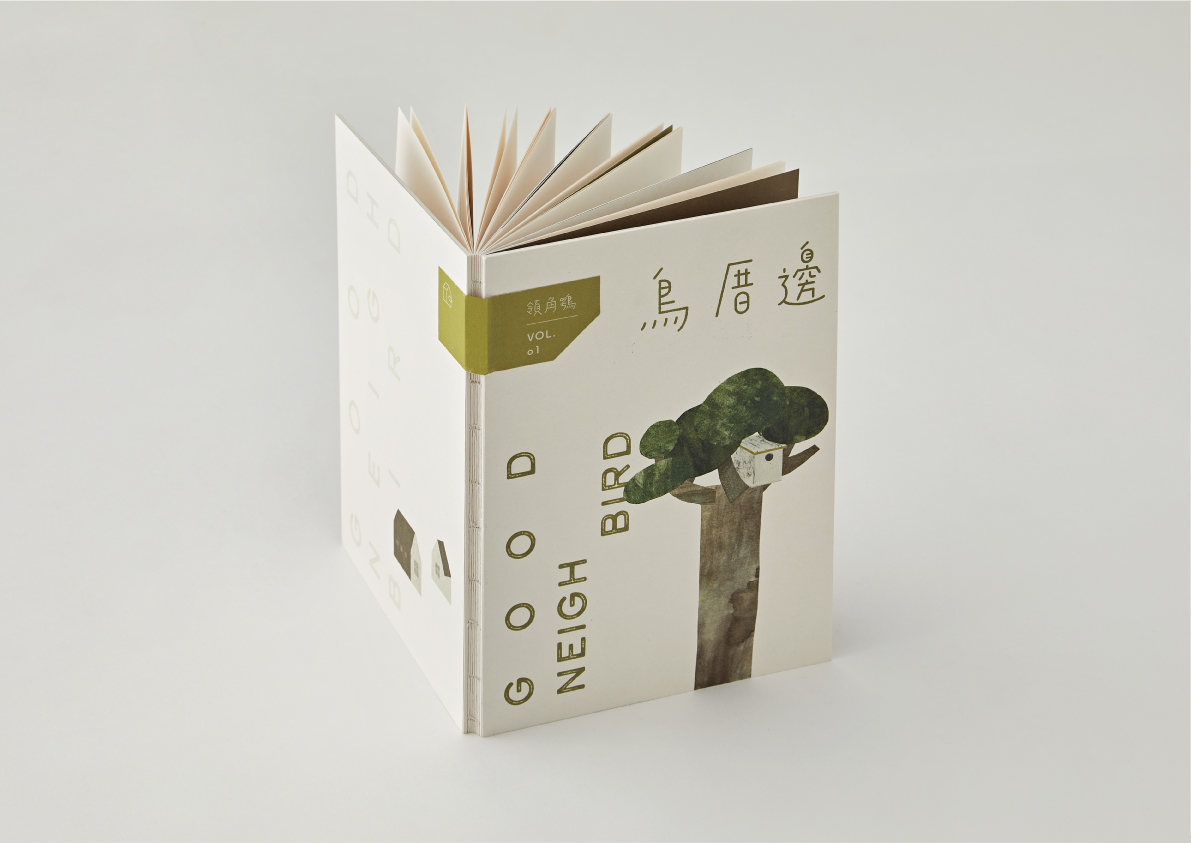
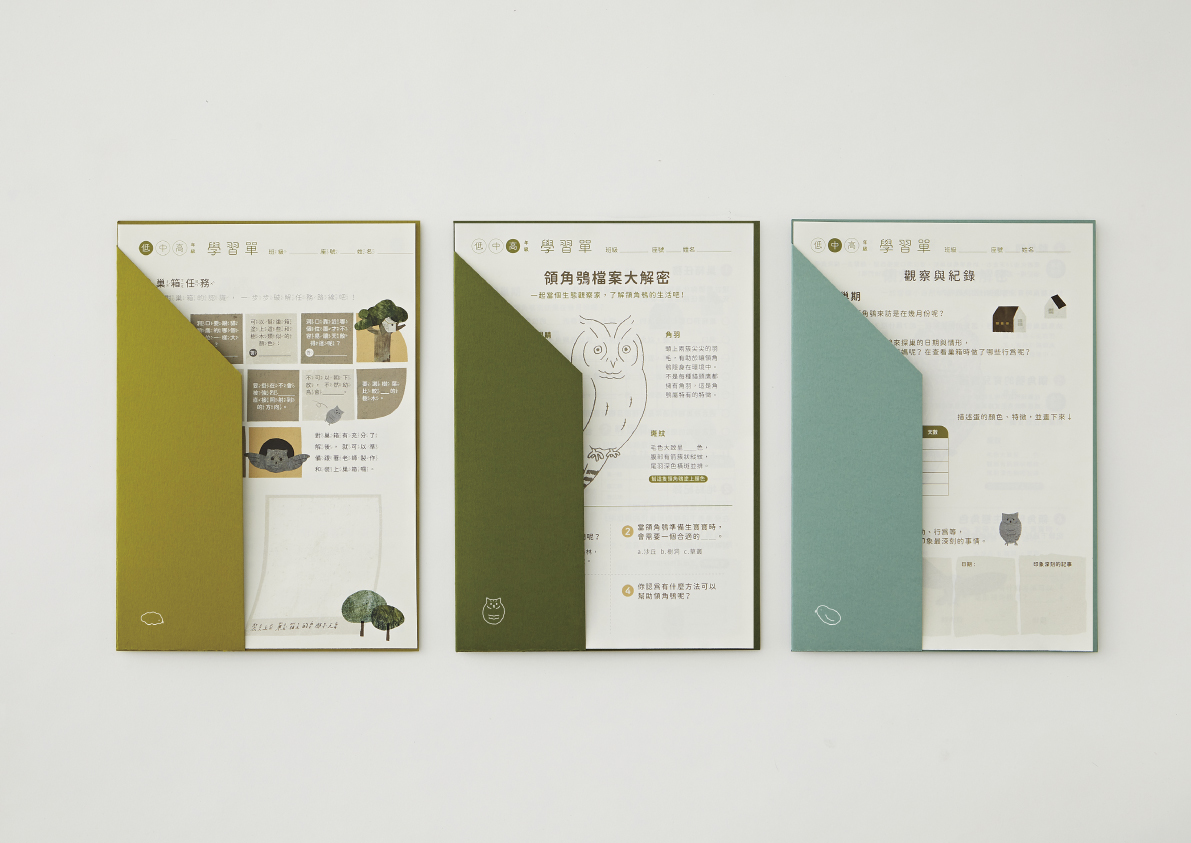
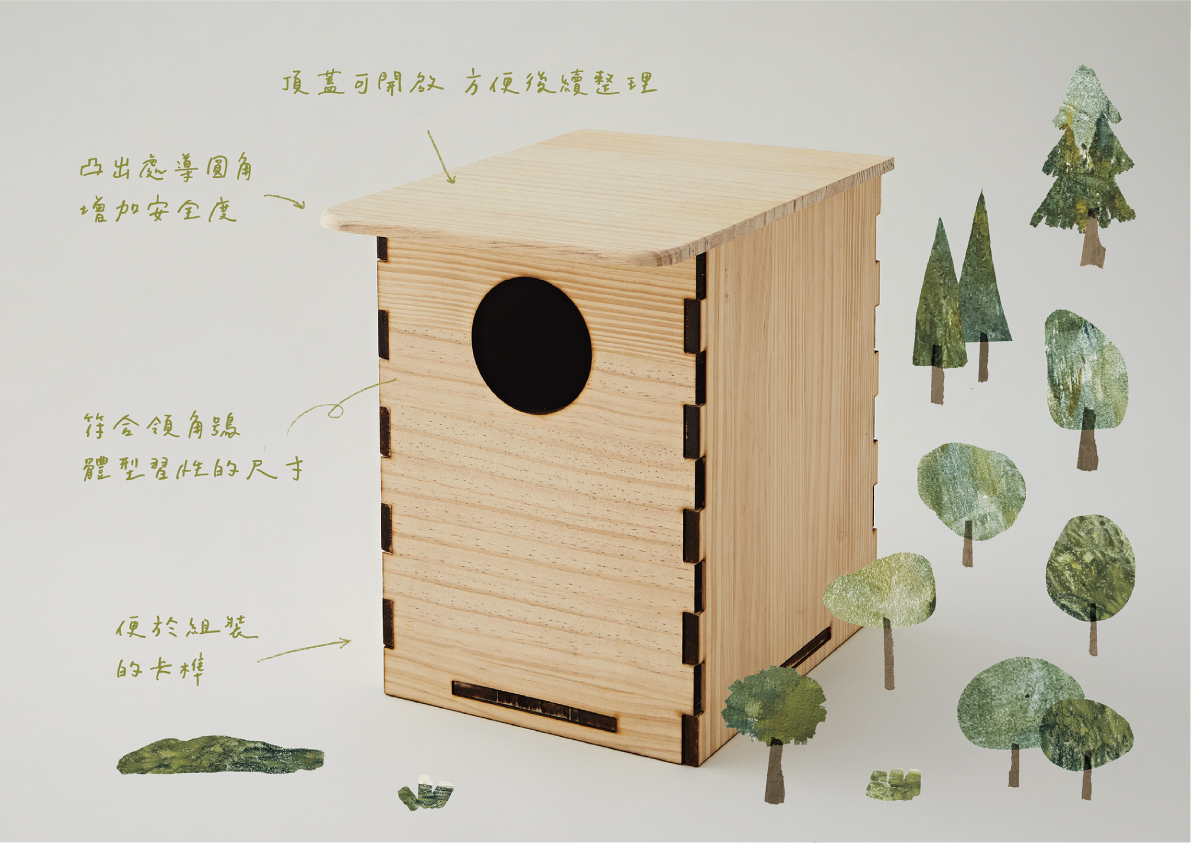
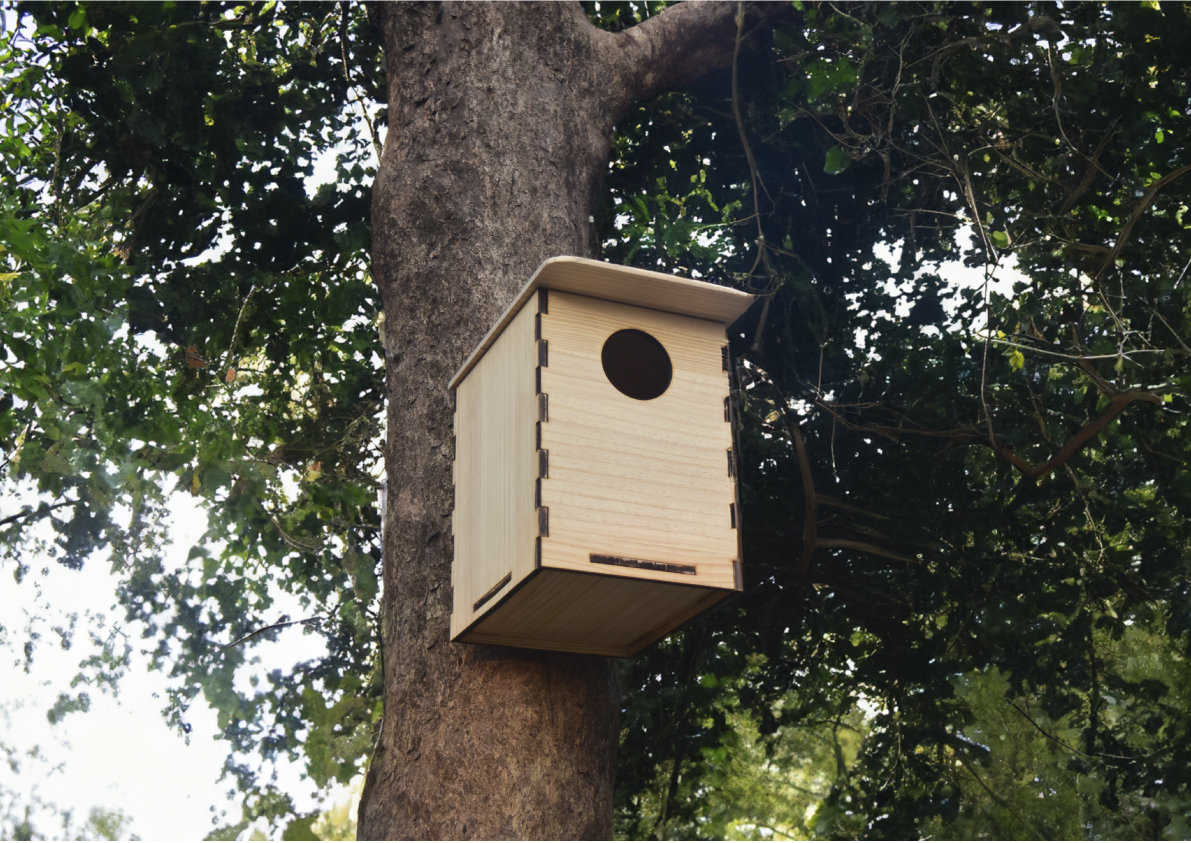
城市裡缺乏深度理想的天然樹洞,讓二級保育類動物——領角鴞只能尋找其他地點育雛,卻不見得安全,同時也遭遇著各種生存危機。在部分的動物逐漸適應都市的同時,我們也許能設置更多棲所供動物使用,並在發展城市的同時,考量與動物的相容性,建立更友善共存的環境。
鳥厝邊以這樣的出發點開始探索,察覺到許多民眾、師生願意主動設置巢箱提供鳥類棲息,然而從不清楚鳥類習性到不知道巢箱尺寸應該如何規劃,搜集完整資訊所需花費的時間,卻可能讓人擱置甚至放棄。
因此鳥厝邊設計了一本認識領角鴞與巢箱製作的圖文工具書,將知識與設計結合,收錄包含領角鴞介紹、觀察指南、如何設計或裝設巢箱等知識,並推廣至校園中,讓教育工作者能在工具書的輔助下節省備課的時間,並針對不同學齡設計學習單,幫助活動進行,淺顯易懂的內容、豐富的插畫,也適合孩子或親子間的閱讀,讓學童在學習環境教育過程中增加樂趣。透過設計,讓落實保育上能更輕易上手。
此外,為了便於課堂上使用,鳥厝邊也根據林業署過往研究報告中適用於領角鴞的巢箱規格,利用卡榫加以改造為便於學童組裝的結構。並保留木頭素材原始樣貌,將上漆、彩繪等步驟留給學童,增加過程中的參與感。
GoodNeighbird
In urban areas where natural tree hollows, essential for the breeding of second-tier conservation species like the Collared Scops Owl, are scarce, these animals are forced to seek alternative, potentially unsafe nesting sites, exposing them to various survival risks. As some wildlife gradually adapts to urban environments, there's an opportunity to establish more habitats to accommodate them. This effort should be coupled with considerations for wildlife compatibility while developing cities, fostering a more harmonious coexistence between humans and animals.
Starting from this premise, Good Neighbird embarked on an exploration and noticed that many people, including teachers and students, are willing to proactively set up nest boxes to provide habitats for birds. However, the lack of understanding of bird behavior and uncertainty about how to design nest boxes may deter individuals from taking action, potentially leading to the abandonment of the initiative.
Therefore, Good Neighbird designed a graphic toolbook that combines knowledge and design, encompassing introductions to the Collared Scops Owl, observation guidelines, and instructions on how to design or install nest boxes. This toolbook is being promoted within school campuses, enabling educators to save preparation time with its assistance. It is tailored to different age groups with learning sheets designed to facilitate activities, enhancing the enjoyment of environmental education for students. Through design, the aim is to make conservation efforts more accessible. Additionally, the content is presented in an easily understandable manner with rich illustrations, making it suitable for reading by children and their families, thereby increasing children's enjoyment of environmental education.
Furthermore, for ease of classroom use, Good Neighbird also utilized nest box specifications applicable to the Collared Scops Owl from past research reports by the Forestry and Nature Conservation Agency, transforming them into structures easily assembled by students using mortise and tenon joints. The original appearance of the wooden material is preserved, leaving painting and coloring steps to the children, thereby increasing their sense of involvement in the process.